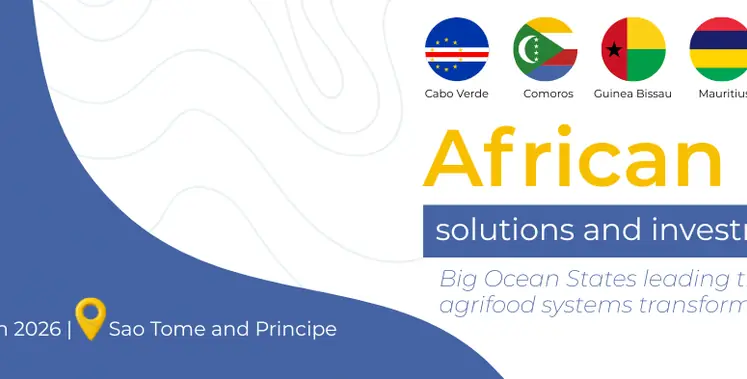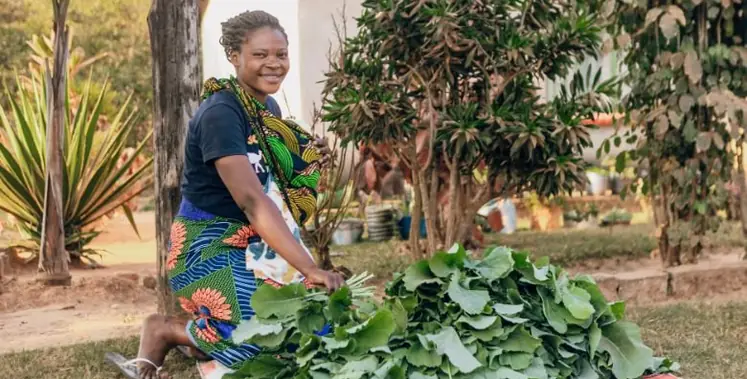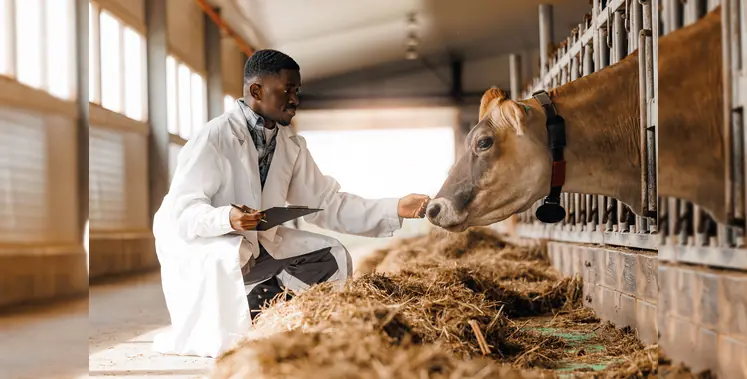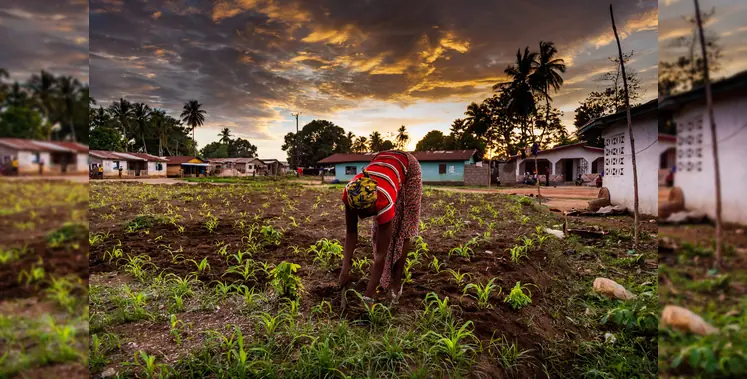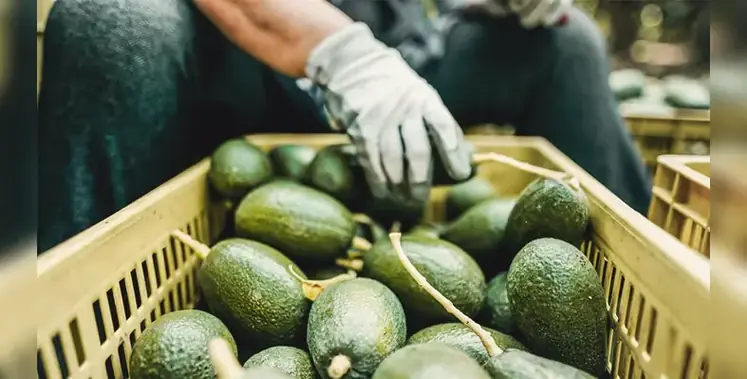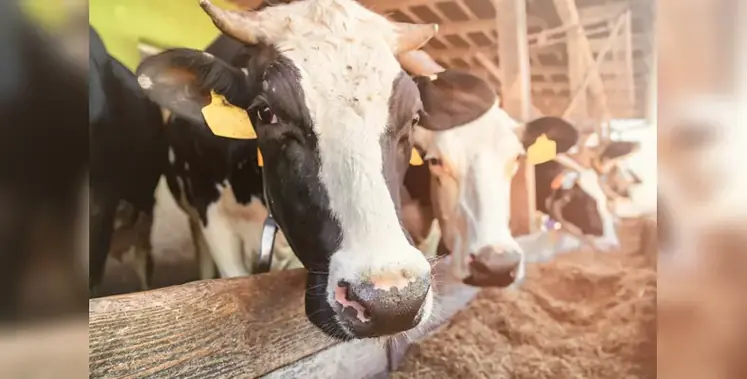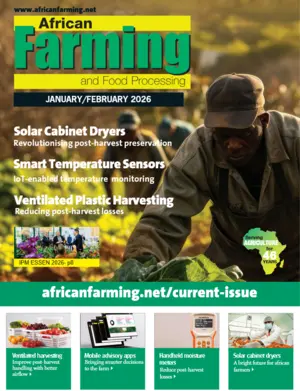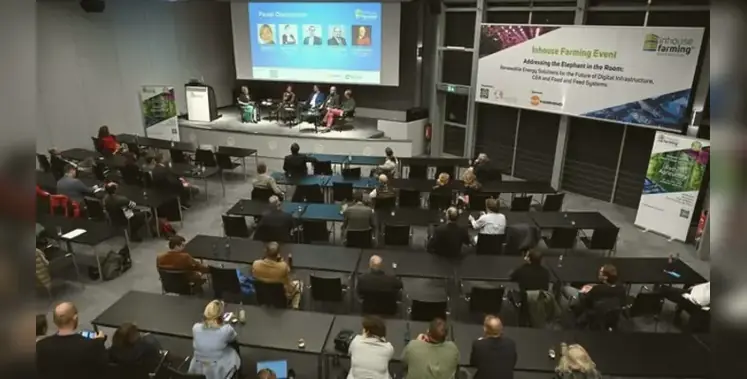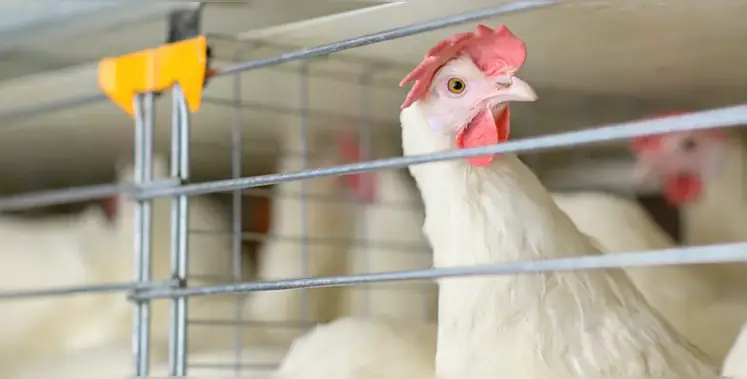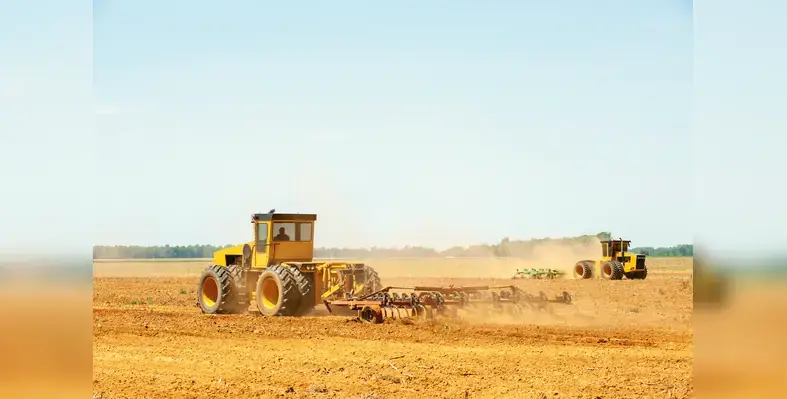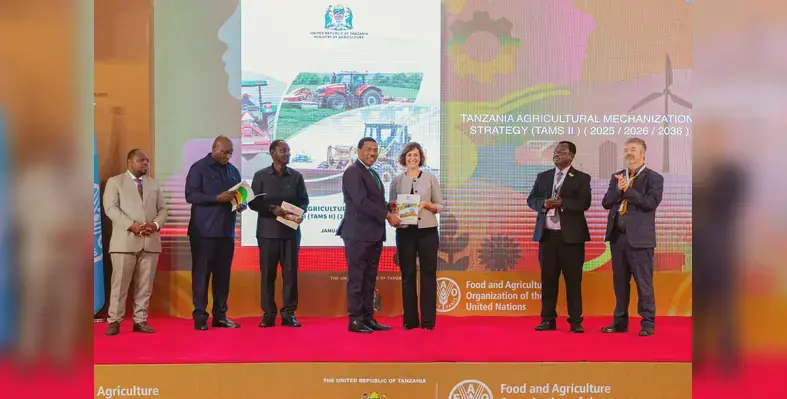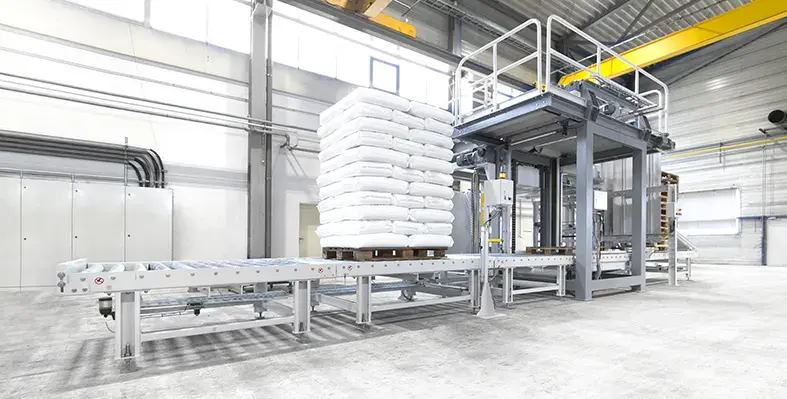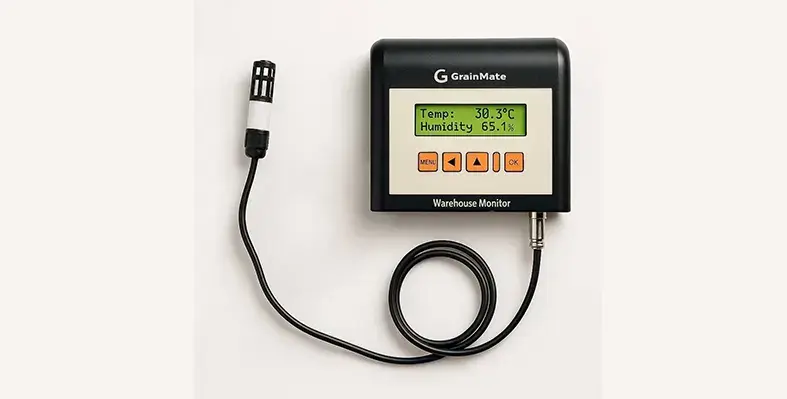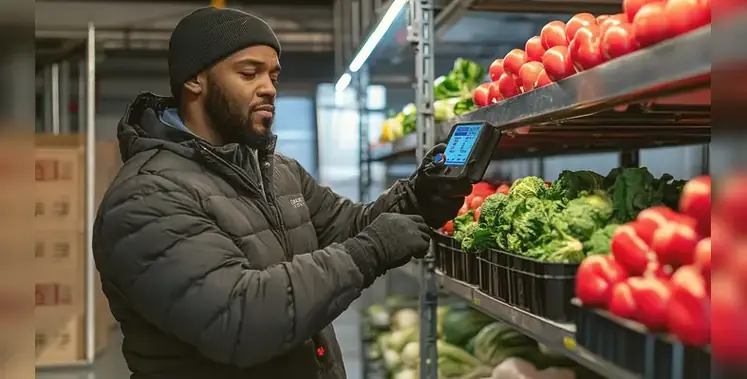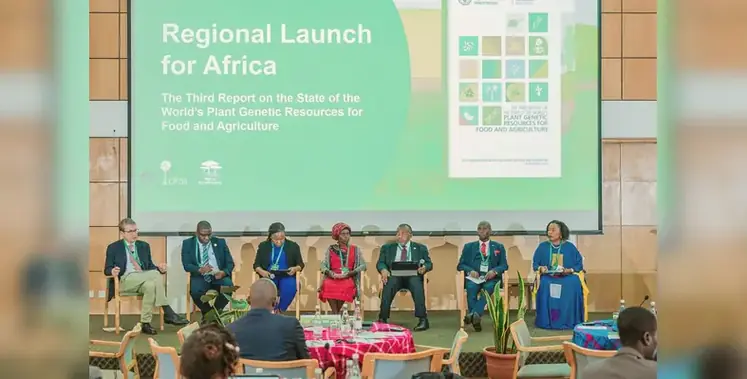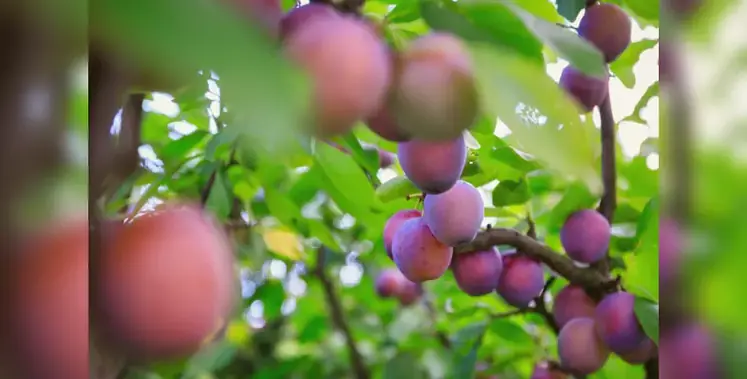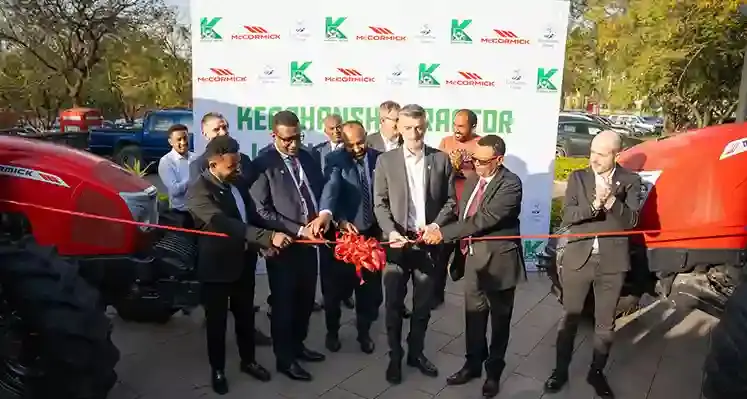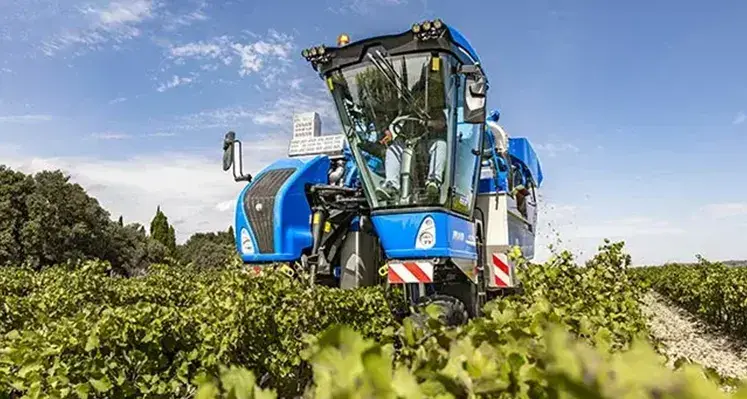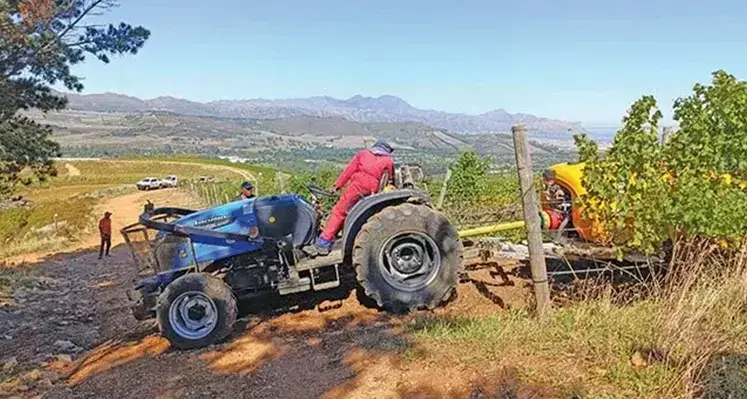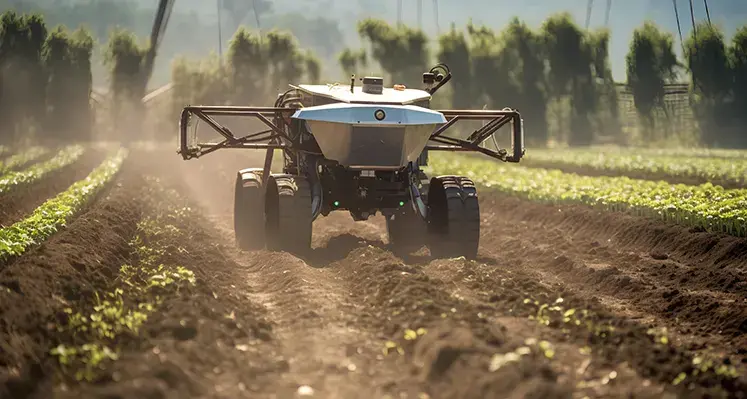In The Spotlight
Bayer has unveiled newgold seed, its first multi crop seed brand created specifically for low carbon intensity crops.
The initiative is designed to give farmers a direct pathway into the expanding biofuels market while supporting farm profitability and practical field performance.
Global demand for sustainable aviation fuel and renewable diesel is rising quickly. As the energy transition gathers pace, the challenge lies in scaling low carbon fuels without disrupting food production or adding unnecessary pressure to farm operations. Bayer sees agriculture as central to meeting that challenge in a balanced and commercially viable way.
Chad Bilby , Biofuel Crops Innovation and Commercial Lead, said, “Innovation alone won’t make the energy transition real. Scale, execution, and market confidence matter. With newgold seed, we are connecting seed innovation, agronomic performance, and market access into one clear opportunity for farmers.”
Developed under the company’s Biofuel Crops platform, newgold seed reflects a shift in thinking. Rather than viewing biofuels solely as an end market, Bayer is building an integrated system that links growers, fuel producers and supply chains from the outset.
The focus is on oilseed crops such as camelina and winter canola. These crops are suited to fitting between main growing seasons, within existing rotations or on underused land. This approach opens the door to additional revenue streams without replacing core food crops.
At its core, newgold seed is built around field level economics. The aim is to create crops that function as a profit multiplier. Farmers can use them as a double crop between seasons, as part of a rotation that supports sound agronomy, or on marginal land to bring new value to underperforming acres. The flexibility allows growers to decide how the crops fit within their own systems while retaining control over financial and agronomic choices.
By connecting seed development with secure market access, Bayer aims to reduce uncertainty and help farmers participate confidently in the low carbon fuel economy.
Kenyan avocado exporters are preparing for a busy peak season with renewed confidence as Maersk rolls out a series of measures to strengthen cold chain logistics across the country.
Announced in Nairobi, the initiative reflects Maersk’s continued commitment to supporting Kenya’s fast growing avocado sector and the thousands of growers and businesses who rely on dependable export routes to reach global markets.
Avocados have become one of Kenya’s most valuable horticultural exports, generating vital foreign exchange and supporting livelihoods across farming communities, packhouses and logistics networks. With international demand rising steadily, maintaining fruit quality from farm to destination remains essential. Maersk’s preparations are aimed at ensuring that exporters can move produce efficiently while preserving the freshness that overseas buyers expect.
The company’s approach combines practical support on the ground with digital engagement. Technical teams are visiting packhouses across key avocado growing regions to conduct focused training sessions. These cover proper handling of refrigerated containers and best practice in cold chain management. By strengthening technical know how at source, exporters are better equipped to maintain correct temperature control throughout transit.
Alongside these visits, Maersk is offering online training and refresher sessions. These programmes guide exporters through customs procedures, documentation requirements and shipping timelines. Updated information on routing options and transit schedules to major markets is also shared, enabling businesses to plan shipments with greater clarity and confidence.
Operational readiness forms another key part of the strategy. Empty refrigerated containers are being positioned in major export zones to ensure availability when volumes surge. Vessel capacity on the Kenya Europe trade route is being prioritised, with additional containers allocated to handle increased demand. Maintaining schedule reliability remains central to the service, helping time sensitive cargo arrive in optimal condition.
Tito Okuku, Managing Director of Maersk East Africa, said, “At Maersk, we recognise that our customers' success is our success. The avocado season is a critical time for Kenyan exporters, and we are committed to providing not just transportation services, but comprehensive support that empowers our customers to meet the world's growing demand for premium Kenyan avocados. Our customer-centric approach means being present, prepared, and proactive, and ensuring that every shipment receives the attention it deserves.”
As Kenya strengthens its standing as a leading supplier of quality avocados, Maersk continues to position itself as a reliable partner through innovation, preparation and close collaboration with the industry.
South Africa has stepped up its response to Foot and mouth disease with the arrival of one million high potency vaccines at OR Tambo International Airport.
The shipment was received under the supervision of John Steenhuisen, Agriculture Minister marking a significant boost to the national vaccination drive already under way in affected regions.
The vaccines were supplied by Biogénesis Bagó in Argentina and form part of a broader supply programme. Further consignments are expected in the coming weeks from BVI in Botswana and Dollvet in Turkey. By the end of March, more than five million doses from these three international suppliers are set to arrive in the country.
At home, the Agricultural Research Council has committed to producing 20 000 vaccines per week, with plans to increase output to 200 000 per week in 2027. The expanded supply will allow authorities to move beyond targeted outbreak response and work towards wider suppression of the virus in high risk areas.
Steenhuisen said, “Vaccination has already begun in affected areas, but supply has limited the speed and coverage. With this arrival, we can now accelerate protection across priority provinces and stabilise the livestock sector.”
Outbreaks have been reported in every province, prompting quarantine measures, movement restrictions and ongoing surveillance. A risk based vaccination strategy will focus first on outbreak centres in KwaZulu Natal and parts of Gauteng, Free State and North West, before extending to other high risk and border regions.
The initial one million doses will be shared across all provinces, with KwaZulu Natal and Free State receiving the largest allocations. However, the minister warned that vaccines alone will not end the crisis.
“Quarantine rules, movement permits and biosecurity measures exist to protect every farmer in the country. Those who deliberately move animals illegally, conceal infections, or ignore restrictions threaten the recovery of the entire sector. Where there is wilful non compliance, we will work with law enforcement authorities and the full might of the law will be applied,” Steenhuisen added.
He will visit Mooi River in KwaZulu Natal on 27 February to vaccinate dairy cattle alongside veterinarians and farmers. “The dairy industry has been among the hardest hit with significant production losses, disrupted markets and immense strain on farming families. That visit marks the practical beginning of recovery at farm level. Each vaccinated herd means stability returning to a business, wages returning to workers and milk returning to shelves.”
“We are moving step by step from crisis management to control,” Minister Steenhuisen concluded. “Vaccines are arriving, the system is scaling up, and compliance will be enforced. Working together, we will stabilise the sector and rebuild confidence in South Africa’s animal health system.”
Manila, Philippines
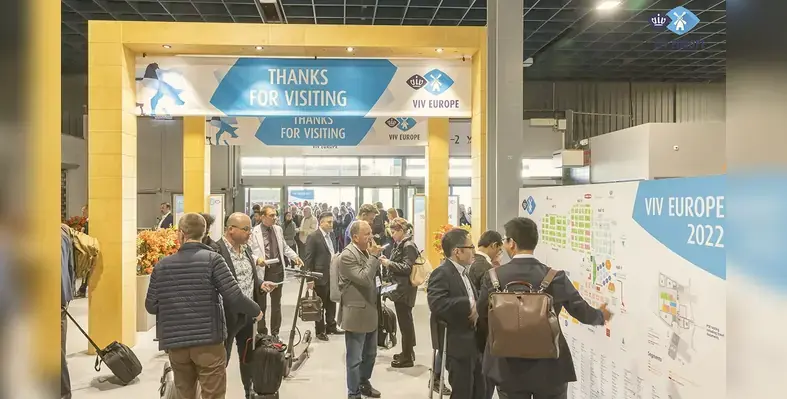
VIV Europe stands out as a vital platform connecting innovation, trade and real business opportunity. (Image credit: VIV Europe)
VIV Europe 2026 is set to be a landmark event as it celebrates its 25th Edition and reinforces its position as one of the most influential agrifood exhibitions in the world.
Backed by strong international partnerships and near sell out momentum, the event returns to where the VIV Worldwide journey first began, bringing together the global feed to food community at a crucial moment for the industry.
Organised by Royal Dutch Jaarbeurs and VNU Europe, the 2026 edition not only honours VIV Europe’s rich legacy but also signals a forward looking strategy. The organisers have confirmed that from 2028 onwards, VIV Europe will move to a two year cycle, with the next edition scheduled for June 2028. This shift aims to provide greater continuity, consistency and long term value for exhibitors and visitors alike.
“VIV Europe is evolving with the strength, consistency and international depth that the industry has been asking for,” said Jeroen van Hooff, President and CEO of Royal Dutch Jaarbeurs and VNU. “Europe needs a reliable and forward-looking agrifood platform to connect strategy, technology and business. VIV Europe 2026 will meet that need and the new two-year rhythm from this year on will provide in the epicenter of Europe, the continuity and momentum that our exhibitors, partners and global community deserve.”
The anniversary edition will welcome around 600 exhibitors showcasing the latest innovations, technologies and machinery across the agrifood value chain. An estimated 20,000 international visitors are expected in Utrecht, one of the world’s leading hubs for agricultural innovation. The programme will be supported by major partners including Rabobank, Wageningen University, the World Poultry Science Association and Common Source, alongside a full week of industry focused activities under the banner of VIV Week.
Poland has been named Country of Honor for 2026, reflecting its status as the leading poultry producer in the European Union and a rapidly growing exporter. Special sessions, delegations and matchmaking activities will spotlight Poland’s dynamic role in animal protein production.
With more than 97 percent of exhibition space already sold, VIV Europe 2026 clearly demonstrates strong market confidence. As Europe’s agrifood sector faces rapid technological change, sustainability demands and global competition, VIV Europe stands out as a vital platform connecting innovation, trade and real business opportunity.
Feed transitions are often underestimated on the farm, yet few decisions carry as much weight when it comes to how well a flock performs at the end of the cycle.
From the moment chicks arrive to the point they reach processing weight, broilers move through several distinct feed phases, each with its own nutritional profile and physical form. Managing these shifts well is what separates a high-performing flock from one that struggles to hit its targets.
As birds grow, their diet moves through starter, grower and finisher specifications, and with each change comes an adjustment in feed texture too, progressing from mash through to crumb and eventually pellet. These are not minor tweaks. Each phase is designed to match the bird's changing biological needs, and any disruption to that process can set the flock back in ways that are hard to undo.
The changeover from starter to grower feed tends to be the trickiest. It brings both a nutritional shift and a change in feed form at the same time. Offering the first batch of grower feed as a crumb or mini pellet rather than a full-sized pellet makes the adjustment far easier for the birds. When this step is skipped, intake tends to drop, growth slows and uniformity across the flock takes a hit.
The simplest and most effective way to handle any transition is to blend the outgoing feed with the incoming one, layering the new on top of the old so birds ease into the change naturally rather than encountering it all at once.
Done properly, feed transition management keeps intake steady, limits wasteful flicking behaviour, protects carcass quality and supports consistent flock health throughout the cycle. These are not just welfare considerations. They translate directly into better returns for the producer.
Planning feed transitions carefully is not optional. It is fundamental to running a productive, profitable broiler operation.
Bayer has unveiled newgold seed, its first multi crop seed brand created specifically for low carbon intensity crops.
The initiative is designed to give farmers a direct pathway into the expanding biofuels market while supporting farm profitability and practical field performance.
Global demand for sustainable aviation fuel and renewable diesel is rising quickly. As the energy transition gathers pace, the challenge lies in scaling low carbon fuels without disrupting food production or adding unnecessary pressure to farm operations. Bayer sees agriculture as central to meeting that challenge in a balanced and commercially viable way.
Chad Bilby , Biofuel Crops Innovation and Commercial Lead, said, “Innovation alone won’t make the energy transition real. Scale, execution, and market confidence matter. With newgold seed, we are connecting seed innovation, agronomic performance, and market access into one clear opportunity for farmers.”
Developed under the company’s Biofuel Crops platform, newgold seed reflects a shift in thinking. Rather than viewing biofuels solely as an end market, Bayer is building an integrated system that links growers, fuel producers and supply chains from the outset.
The focus is on oilseed crops such as camelina and winter canola. These crops are suited to fitting between main growing seasons, within existing rotations or on underused land. This approach opens the door to additional revenue streams without replacing core food crops.
At its core, newgold seed is built around field level economics. The aim is to create crops that function as a profit multiplier. Farmers can use them as a double crop between seasons, as part of a rotation that supports sound agronomy, or on marginal land to bring new value to underperforming acres. The flexibility allows growers to decide how the crops fit within their own systems while retaining control over financial and agronomic choices.
By connecting seed development with secure market access, Bayer aims to reduce uncertainty and help farmers participate confidently in the low carbon fuel economy.
Global agriculture continues to expand, yet the agricultural machinery market is navigating a period of turbulence.
Economic uncertainty, geopolitical tensions and shifting trade policies are reshaping where and how farm equipment is bought and sold. This evolving landscape was outlined during the press conference launching the 47th edition of EIMA International, the world’s leading exhibition for agricultural technologies, set to take place in Bologna from 10 to 14 November.
Mariateresa Maschio, FederUnacoma President, said, “Protectionist policies in some countries, economic sanctions, interference with trade routes, and tariff wars have led to market fragmentation and a sharp slowdown in trade which is weighing on the performance of the agromechanical sector.”
Traditional markets are feeling the strain. The United States recorded a 10 percent fall in tractor sales in 2025, while Germany, France and the United Kingdom also posted double digit declines. In contrast, southern Europe is showing renewed momentum. Italy and Spain both closed the year with strong growth, signalling cautious optimism within the European agricultural machinery industry.
India remains the standout performer. With tractor sales exceeding 1.1 million units, the country continues to dominate the global market. According to Maschio, this growth reflects deeper structural demand rather than a short term spike. “Over the past fifteen years, output in the primary sector has grown significantly,” said Mariateresa Maschio, “but to meet the needs of the world’s population it will have to grow by a further 14% by 2034, especially in India and in those countries of North Africa, Sub-Saharan Africa, and the Middle East that are experiencing the highest demographic growth.”
A new geography of agricultural production is emerging, driven by mechanisation, digital farming solutions and expanding demand in Asia, Africa and Latin America. Chinese manufacturers are rapidly increasing their presence across these regions and even gaining ground in Europe.
“In the coming years we will have a highly segmented agromechanical sector, with low-cost basic technologies alongside highly advanced technologies for complex operations,” added Mariateresa Maschio, underlining the importance of innovation, policy support and international cooperation as the sector looks ahead.




